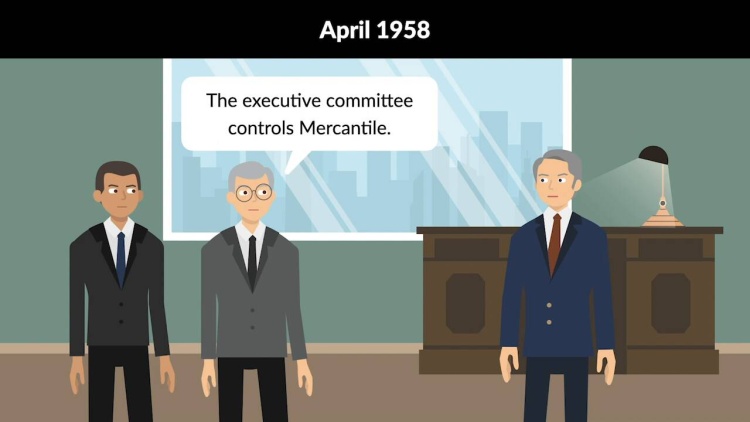Jennings v. Pittsburgh Mercantile Co.
Supreme Court of Pennsylvania
202 A.2d 51 (1964)
- Written by Sarah Larkin, JD
Facts
Jennings and Cantor (plaintiffs), a real estate broker and real estate investment counselor and attorney, entered into an agreement with Pittsburgh Mercantile Co. (Mercantile) (defendant) to solicit bids for the purchase of real estate. Jennings met with Egmore, Mercantile’s vice president and treasurer-comptroller, and Stern, Mercantile’s financial consultant, to discuss Mercantile’s finances and plans. This was an unusual transaction for Mercantile. At the meeting, Egmore conveyed that he was a member of Mercantile’s executive committee, which controlled Mercantile; the executive committee would determine whether the company would accept any offers solicited by Jennings; and the approval by the board of directors of an offer would be automatic. Egmore outlined preliminary terms of an acceptable offer and promised Jennings a commission upon success in bringing in an acceptable offer. Jennings brought in an offer close to the acceptable terms and Stern informed Jennings the executive committee had agreed to the deal. However, within a week, Egmore informed Jennings the offer had been rejected and refused to pay Jennings his commission. Jennings and Cantor filed suit in assumpsit to recover the commission. The case went to trial and the jury returned a verdict for Jennings. Mercantile moved for judgment notwithstanding the verdict, but the trial court denied the motion.
Rule of Law
Issue
Holding and Reasoning (Cohen, J.)
What to do next…
Here's why 911,000 law students have relied on our case briefs:
- Written by law professors and practitioners, not other law students. 47,100 briefs, keyed to 997 casebooks. Top-notch customer support.
- The right amount of information, includes the facts, issues, rule of law, holding and reasoning, and any concurrences and dissents.
- Access in your classes, works on your mobile and tablet. Massive library of related video lessons and high quality multiple-choice questions.
- Easy to use, uniform format for every case brief. Written in plain English, not in legalese. Our briefs summarize and simplify; they don’t just repeat the court’s language.





